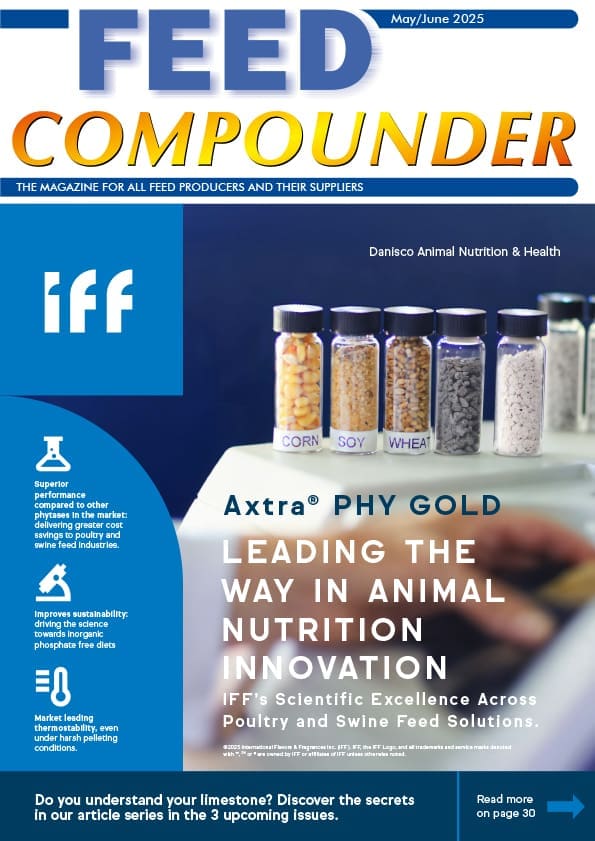Metabolic health is a key factor in supporting longevity and quality of life in dogs. Important aspects of metabolic health include weight management and blood glucose control. Although healthy dogs typically regulate blood sugar well, repeated glucose spikes—particularly in overweight or aging animals—can contribute to insulin resistance, low-grade inflammation and other metabolic disorders. Today, over half of pet dogs in the UK are estimated to be overweight or obese. As dogs live longer and share more of their owners’ dietary and activity patterns, the risk of developing chronic, lifestyle-associated conditions rises.
Many pet parents today are eager to take a proactive approach to their pets’ health. In the UK, for example, 83% of dog owners express interest in products that could help extend their pets’ lifespan¹. This growing demand is reflected in the expanding pet nutrition market, which is projected to see a 3.9% global compound annual growth rate (CAGR) compared to last year². Within this space, metabolic health is emerging as a promising avenue for proactive pet care. New research from ADM highlights significant untapped potential in the canine sector, with increasing opportunities to support dogs’ metabolic wellbeing through tailored nutrition and lifestyle interventions.

As interest in functional ingredients for companion animals continues to grow, ADM is leveraging its global network of research and development (R&D) teams and facilities to advance scientific understanding of pet health. This includes targeted studies on the role of biotics such as probiotics, prebiotics, and postbiotics in supporting the wellbeing of dogs and cats.
Historically, the development of supplements for companion animals has often relied on data extrapolated from human studies, under the assumption that similar effects will translate across species. However, species-specific research is essential to ensure products are safe and truly effective for canine and feline health.
While biotic ingredients are well established for their benefits in supporting gut health, their role in metabolic health—particularly in dogs—has been relatively underexplored. There is a growing need for research to better understand how these functional ingredients can help proactively support canine metabolic health, including blood sugar management, through safe, evidence-based nutritional interventions—before health concerns develop. To help address this gap, ADM R&D Health & Wellness conducted a clinical study to evaluate the effects of a biotic ingredient on metabolic health in dogs.
Clinical Study Demonstrates the Potential of PRIOME® MH Postbiotic for Supporting Canine Metabolic Health
ADM R&D Health & Wellness recently investigated the effects of Bifidobacterium animalis subsp. lactis CECT 8145 (PRIOME® Metabolic Health or PRIOME® MH) in dogs during metabolic stress, with promising results highlighting the potential of this postbiotic (heat treated microorganism) for supporting healthy blood sugar levels³.
The randomized, double-blind, placebo-controlled clinical trial involved 45 healthy adult dogs and evaluated the impact of daily probiotic or postbiotic supplementation on key markers of metabolic health during periods of induced weight gain and weight loss. Dogs were assigned to one of three groups, alongside a standard kibble diet:
- Daily supplementation with 5B CFU PRIOME® MH probiotic (n = 15)
- Daily supplementation with 5B HTC heat-treated PRIOME® MH postbiotic (n = 15)
- Daily supplementation with placebo (n = 15)
The study was conducted in two independent phases:
- A weight gain phase, in which dogs were offered 200% of their maintenance energy requirement
- A weight loss phase, in which overweight dogs were fed 100% of the maintenance requirement for their ideal weight
Researchers measured several outcomes, including body weight, body composition, postprandial blood glucose, food intake, and gastrointestinal hormones such as GLP-1 and glucagon, which are key regulators of metabolic processes.
Notably, dogs receiving the postbiotic form of PRIOME® MH showed a significant reduction in postprandial blood glucose levels after eating a kibble meal compared to the placebo group, during the weight loss phase. These findings suggest the potential of PRIOME® MH postbiotic to help support blood sugar management and overall metabolic health in dogs.
Additional positive findings included a reduction in blood levels of gamma-glutamyl transferase (GGT), a biochemical marker of liver function commonly elevated in obese dogs, as well as beneficial alterations in gut hormone levels, which play a key role in regulating metabolic processes.
These findings mark an important step toward developing safe, evidence-based nutritional interventions to proactively support metabolic health in dogs, helping address the growing need for solutions in this emerging area of pet wellness.
Accumulating Evidence for PRIOME® MH: Insights from Human, Canine, and Pre-Clinical Studies

Earlier studies in humans and dogs carried out by ADM R&D and partners have highlighted the potential health benefits of Bifidobacterium animalis subsp. lactis CECT 8145, both in its probiotic and postbiotic forms. For example, in abdominally obese adults, daily supplementation with Bifidobacterium animalis subsp. lactis CECT 8145 —particularly in its heat-treated postbiotic form—was associated with improvements in anthropometric markers of adiposity, particularly reductions in waist circumference, suggesting a beneficial role in central fat reduction4.
In children and adolescents with Prader–Willi Syndrome, a condition marked by severe obesity and metabolic dysfunction secondary to chronic overeating, probiotic Bifidobacterium animalis subsp. lactis CECT 8145 supplementation led to reduced abdominal fat, improved insulin sensitivity, and even improvements in behavioural symptoms such as social withdrawal5.
In healthy adult dogs, daily supplementation with both the probiotic and postbiotic forms of Bifidobacterium animalis subsp. lactis CECT 8145 was associated with functional microbiome-modulating effects, indicated by changes in faecal short-chain fatty acids and the gut microbiome6.
These clinical findings are underpinned by pre-clinical studies in models of metabolic stress and obesity, which have revealed that lipoteichoic acid—a cell wall component of Bifidobacterium animalis subsp. lactis CECT 8145—is a key effector molecule through its modulation of the insulin/IGF-1 signalling pathway7.
Targeting Pet Wellness Around the World
The findings from ADM’s latest clinical study in dogs highlight the exciting potential of Bifidobacterium animalis subsp. lactis CECT 8145 (PRIOME® MH) in its postbiotic form to help support metabolic health in adult dogs. These results add to the growing body of scientific evidence demonstrating that postbiotics can deliver targeted, beneficial physiological effects. With tailored postbiotic solutions, there is significant potential to proactively enhance healthspan and quality of life in companion animals.
Postbiotics are the next generation of biotic ingredients due to their inherent stability and ability to maintain functionality across a wide range of processing environments and finished formats, like pet supplement powders, stick packs, soft chews and functional treats, as well as wet and dry pet foods. These products are popular with dogs and convenient for their pet parents to use.
As pet owners become increasingly interested in tailored solutions for pet well-being, their top concerns include healthy aging and general wellness, joint health and mobility, dental and oral health, skin and coat health and digestive health8. Moreover, 79% of global pet parents are willing to spend money on proactive care to reduce the risk of larger expenses later on8. Consumers who have previously bought pet supplements say an attractive price, enjoyable flavour and format, and trust that products work as claimed are the main motivators driving their purchase8.
It’s more crucial than ever for the industry to commit to developing targeted supplements for pets and validating their efficacy through clinical trials designed specifically for canine and feline populations. ADM has recently opened an R&D centre in Epalinges, Switzerland that will establish new standards in pet and farm animal microbiome research and development. The research at this centre will build on ADM’s existing work in both human and animal nutrition and advance pet wellness through science and innovation.
Studies are ongoing to explore and evaluate microbiome-supporting solutions for companion animals, ensuring they deliver measurable benefits in areas such as oral care9, balanced behavior10, skin health11, gut health12, mobility and immune function in companion animals. Promising research findings may lead to new market solutions in collaboration with ADM customers. Pet brands are more likely to earn the trust of consumers, veterinarians and specialized retailers by incorporating functional ingredients with scientifically substantiated claims into pet wellness products.
*PRIOME® is a trademark registered for ADM or its affiliates in the EU and other countries.
1ADM Outside Voice℠, Global Lifestyle Study, 2025
2Euromonitor
3Based on ADM clinical research
4Pedret, A.; et al. Int J Obes. 2019;43,1863-1868.
5Amat-Bou, M.; et al. Nutrients. 2020 Oct 13;12(10):3123.
6Kayser, E.; et al. J Anim Sci. 2024 Jan 3;102:skae291.
7Balaguer, F.; et al. Antioxidants (Basel). 2023 Dec 13;12(12):2107.
8ADM Outside Voice℠
9Florit-Ruiz, A.; et al. Animals. 2025;15(11):1615.
10Robles et al., Cells. 2024;13,2006.
11Based on clinical data from human and in vitro trials.
12Wang, F; et al. Animals. 2024;14(15):2179.
By Sophie Nixon, Ph.D., Head of R&D Clinical Research for Pet & Animal Wellbeing, ADM
Author Bio:
Sophie Nixon, BVSc, Ph.D. (Oxon), MRCVS, is Head of Clinical Research for Pet and Animal Wellbeing (PAW) within ADM R&D Health & Wellness. With a particular interest in the relationship between the microbiome and pet health, Nixon’s work focuses on how biotics can be harnessed to support companion animal wellbeing. Her research spans key areas of companion animal health, including metabolic health, gut health, and oral health.
Nixon’s dedication to advancing pet health has been a consistent thread throughout her career, which began in clinical veterinary practice before progressing to a BBSRC-funded Ph.D. in neuroscience at the University of Oxford. Since 2017, she has led a portfolio of clinical research projects focused on companion animals, working closely with global academic and industry partners to translate scientific innovation into practical health solutions for pets. Nixon continues to hold membership with the Royal College of Veterinary Surgeons (RCVS) in the UK, driven by her passion for improving the health and quality of life of animals.




